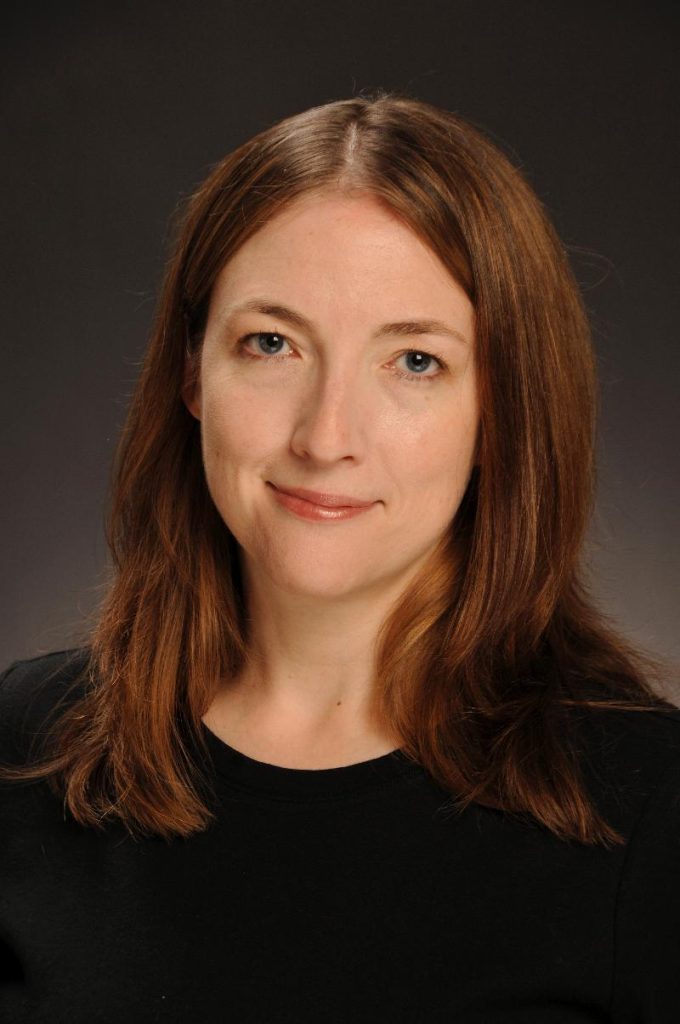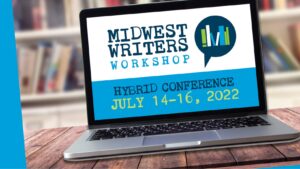MWW Committee Member Cathy Day talks with faculty member Erica O’Rourke, who will teach a Part I Intensive entitled “YA Double Header: Strategies for Crafting Compelling Young Adult Novels,” as well as short sessions during Part II on critique partners, the life/work balance, and tricks of the trilogy.
 Erica is a former high school English teacher who has lived in the Chicago area her entire life. She is the 2010 winner of the Romance Writers of America’s Golden Heart® contest for Best Young Adult Manuscript. Torn, the first book in the Torn Trilogy, was the launch title for Kensington Books’ KTeen line. When she’s not writing, Erica enjoys reading, watching Doctor Who, and keeping her three daughters and two cats in line – with the help of her exceedingly patient husband, who doesn’t like Doctor Who at all. She loves sushi but hates fish, and drinks far too much coffee. The second book in her trilogy, Tangled, was released in February 2012, and the third, Bound, will launch June 26, 2012.
Erica is a former high school English teacher who has lived in the Chicago area her entire life. She is the 2010 winner of the Romance Writers of America’s Golden Heart® contest for Best Young Adult Manuscript. Torn, the first book in the Torn Trilogy, was the launch title for Kensington Books’ KTeen line. When she’s not writing, Erica enjoys reading, watching Doctor Who, and keeping her three daughters and two cats in line – with the help of her exceedingly patient husband, who doesn’t like Doctor Who at all. She loves sushi but hates fish, and drinks far too much coffee. The second book in her trilogy, Tangled, was released in February 2012, and the third, Bound, will launch June 26, 2012.
Q: Your intensive will feature strategies related finding a strong, distinctive YA voice. What does that term, “voice,” mean to you, and why is it important?
One of the things that characterizes YA today is a strong narrative voice, whether you’re writing in first person or third. It requires that you get inside the skin of your character and perceive the world as they do. Everything that occurs in the story needs to be filtered through their experiences — if they come from a small village, they shouldn’t talk about the subway expertly, for example, but they might think in terms of nature metaphors. A character who’s an athlete might view everything as a competition; a character who’s a brilliant student might view every conflict as a test. (Those are gross oversimplifications, of course, but they provide a starting point — you’ll refine as you write, and even more in revision.)
Q: I like that that phrase, “filter through their experiences,” because I’ve noticed that many of my students write as if they are watching their characters, when instead they have to be their characters.
Yes, deep point of view is really tricky, and truth be told, one of the reasons I prefer writing in first person.
Q: Can you give us one tip, one trick you use for getting inside characters and finding their voice that’s worked for you? How did you find Mo’s voice? I’ll even share one of my own tricks: I imagine my character posting Facebook status updates or tweeting to figure out her voice.
My favorite quick-and-dirty trick to get to know a character — or to build one — is to plan out his or her class schedule. By the time they’re juniors or seniors, kids have a fair amount of flexibility in their coursework: they can take a variety of core classes depending on their career goals, and their elective choices number in the billions. So, I typically download the course handbook from the sort of school my heroine is attending, whether it’s a Catholic all-girls school or one that’s small and rural. I decide what their post-high school plans are: prestigious university? work? backpacking across Europe? Once I know that, I fill in the classes I think they’d take, paying special attention to the electives. A student who takes a lot of speech and drama electives is going to have a more assured, confident voice. Someone who takes a lot of computer science electives is going to have a more logical voice. Again, these are broad strokes. You don’t want your protagonist sounding like Spock just because they’re taking a programming class, but knowing this about them gives you a filter, and you can decide how much you want the filter to apply. You can also use this to make your characters voice and situation more complex: If you have someone who’s taking Principles of Accounting AND Interpretive Dance, it’s pretty clear that something’s up on the home front. That tension should show up in the way she views the world, and herself, and her interactions with other people.
Do you have to stick to your schedule? Not at all. You can use this even if you’re writing a book set completely outside of a high school, if you want – if you’re writing a sci-fi book set in outer space, envision what they’d study: Fitness in Zero Gravity; Airlock Maintenance; AP Klingon History. The key is to use this schedule to understand your protagonist better, to really internalize how they view the world and then apply that to your writing.
Q: As soon as you signed on to teach at MWW, I ordered Torn and tore through it, and a few months later, read Tangled with just as much anticipation. I’m really looking forward to Bound and seeing how the trilogy resolves. Here’s the question I’ve wanted to ask you for awhile: on your website, you say you “write books about girls who make their own fate and fall for boys they shouldn’t,” and I think it’s really important that your books do both those things. Why is it important as a YA author to strike that balance, and how do you do it?
I think the balance is important in YA because to focus exclusively on either one risks making the characters stagnant or unrelatable. If the entire storyline is about the relationship between a protagonist and their love interest, with no thought to the repercussion it has on the rest of their life, you’re looking at a character that won’t really grow or change, because that relationship is only one aspect of their life. And it’s not realistic, because even though teenagers might feel that the relationship they’re in is The Most Important Thing In The World, they’re accustomed to pressure and conflict in all areas of their life: school, parents, friends, jobs, sports, etc. Similarly, a character who pursues a goal single-mindedly, who doesn’t care about the people and events around her, is neither sympathetic or realistic.
Q: That’s a really good way to put it: it’s more realistic for a character to care about both Life and Love. Mo isn’t just “torn” about which guy to choose. She’s also torn about what she wants out of life, right?
For me, the key was to make sure that each boy represented a potential future for Mo: either a life with the Arcs, and the dangers inherent in that, or a life in Chicago, negotiating a truce with the Mob. I don’t want to spoil Bound for you, but I’ll say this: Mo chooses which life she wants well before she chooses between the guys. That was always the crux of the story: Mo’s journey to determine who she wanted to be and what kind of life she wanted for herself. The boys, while great fun to write, were a way of representing those choices.
Register for Erica’s Thursday (July 26) Intensive Session, “YA Double Header: Strategies for Crafting Compelling Young Adult Novels.”
(Limited class size, so don’t wait!)


